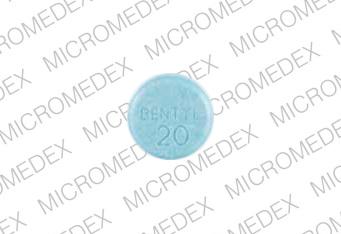Bentyl and Alcohol/Food Interactions
There are 2 alcohol/food/lifestyle interactions with Bentyl (dicyclomine).
Dicyclomine Alcohol (Ethanol)
Moderate Drug Interaction
Ask your doctor before using dicyclomine together with ethanol (alcohol). Use alcohol cautiously. Alcohol may increase drowsiness and dizziness while you are taking dicyclomine. You should be warned not to exceed recommended dosages and to avoid activities requiring mental alertness. If your doctor prescribes these medications together, you may need a dose adjustment to safely take this combination. It is important to tell your doctor about all other medications you use, including vitamins and herbs. Do not stop using any medications without first talking to your doctor.
Switch to professional interaction data
Dicyclomine High Blood Pressure (Hypertension)
Minor Potential Hazard, Moderate plausibility
anticholinergics - hypertension
Cardiovascular effects of anticholinergics may exacerbate hypertension. Therapy with anticholinergic agents should be administered cautiously in patients with hypertension.
Switch to professional interaction data
Bentyl drug interactions
There are 209 drug interactions with Bentyl (dicyclomine).
Bentyl disease interactions
There are 18 disease interactions with Bentyl (dicyclomine) which include:
- autonomic neuropathy
- GI obstruction
- glaucoma
- obstructive uropathy
- tardive dyskinesia
- myasthenia gravis
- infectious diarrhea
- CV acute hemorrhage
- reflux esophagitis.
- severe ulcerative colitis
- coronary artery disease
- gastroesophageal reflux
- psychoses
- hepatic impairment
- hyperthyroidism
- renal impairment
- hypertension
- fever
More about Bentyl (dicyclomine)
- Bentyl consumer information
- Check interactions
- Compare alternatives
- Reviews (140)
- Drug images
- Side effects
- Dosage information
- During pregnancy
- Support group
- Drug class: anticholinergics/antispasmodics
- Breastfeeding
Related treatment guides
Drug Interaction Classification
| Highly clinically significant. Avoid combinations; the risk of the interaction outweighs the benefit. | |
| Moderately clinically significant. Usually avoid combinations; use it only under special circumstances. | |
| Minimally clinically significant. Minimize risk; assess risk and consider an alternative drug, take steps to circumvent the interaction risk and/or institute a monitoring plan. | |
| No interaction information available. |
See also:
Further information
Always consult your healthcare provider to ensure the information displayed on this page applies to your personal circumstances.


